 Pierre Baldi
Pierre Baldi
University of California, Irvine
United States
Pierre Baldi earned MS degrees in Mathematics and Psychology from the University of Paris, and a PhD in Mathematics from the California Institute of Technology. He is currently Distinguished Professor in the Department of Computer Science, Director of the AI in Science Institute, and Associate Director of the Center for Machine Learning and Intelligent Systems at the University of California Irvine. The long term focus of his research is on understanding intelligence in brains and machines. He has made several contributions to the theory of AI and deep learning, and developed and applied AI and deep learning methods for the natural sciences, to address problems in physics (e.g., exotic particle detection), chemistry (e.g., reaction prediction), and bio-medicine (e.g., circadian rhythm analyses, biomedical imaging analyses). He recently published his fifth book: Deep Learning in Science, Cambridge University Press (2021). His honors include the 1993 Lew Allen Award at JPL, the 2010 E. R. Caianiello Prize for research in machine learning, the 2023 Dennis Gabor Prize of the International Neural Network Society, and election to Fellow of the AAAS, AAAI, IEEE, ACM, and ISCB.
He has co-founded several startup companies.
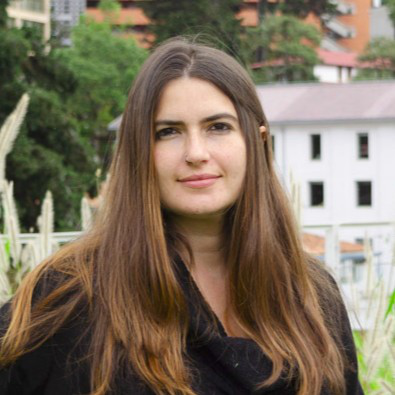 Maryam Chaib De Mares
Maryam Chaib De Mares
National University of Colombia
Colombia
Maryam Chaib De Mares is an assistant professor at the National University of Colombia. She studies the evolutionary and molecular basis of symbiotic relationships between animal hosts and microorganisms. She is also interested in understanding how ecological conditions modify the dynamics of these interspecific interactions. Maryam holds a Master's degree in Ecology and Evolutionary Biology from the University of Montpellier 2 in France and the University of Groningen in the Netherlands. At the latter university, she advanced her doctoral training in Microbial Ecology and Bioinformatics.
As a postdoctoral researcher in the Computational Biology and Microbial Ecology research group at the Universidad de los Andes, she taught undergraduate and masters classes in Genomics, Microbial Ecology and Bioinformatics and started working on the integration of sequence analysis with mathematical modeling in artificial microbial consortia from the human gut. Currently, Maryam leads the Theoretical and Evolutionary Molecular Biology Research Group at Universidad Nacional de Colombia. She is combining interdisciplinary approaches that integrate computation and wet-lab experiments to design and understand how gene circuits from communities of microorganisms have the ability to modulate animal host physiology.
Maryam also is a consultant in statistics and data analysis for the private sector. In addition, since her doctoral studies she has been trained in research data management, leading the adoption of reproducibility practices in computational biology. Beyond biology research, she has participated in open data initiatives to bring these skills to all interested citizens.
Molecular and Evolutionary Insights into Host-Microbe Symbiosis: A Computational Perspective
Understanding the intricate interactions that take place between hosts and microbes is essential for uncovering how microbial communities influence host physiology, adaptation, and health. This keynote will present computational strategies to decode these complex interactions by integrating functional genomics data analyses with ecological modeling. Focusing on secreted bacterial proteins, small RNAs, and their genetic targets in emerging model organisms, notably invertebrates, I explore the molecular mechanisms underlying symbiosis. The methodologies combine comparative and functional genomics with dynamic modeling to predict microbial processes such as competition, cooperation, and functional complementarity, and their effects on host traits like stress response and immunity. Co-divergence analyses will also be highlighted, tracing the evolutionary history of hosts and their symbionts to reveal the co-evolutionary dynamics that shape these associations. Through case studies, this presentation will showcase how computational tools can bridge molecular mechanisms and broader ecological processes, offering new insights into microbial contributions to host biology across scales. This integrated approach underscores the value of computational methods in advancing our understanding of symbiosis, with broader implications that demonstrate how these tools can identify key microbial players and pathways, supporting the development of new approaches to modulate host-microbiome interactions, potentially enhancing animal health and nutrition.
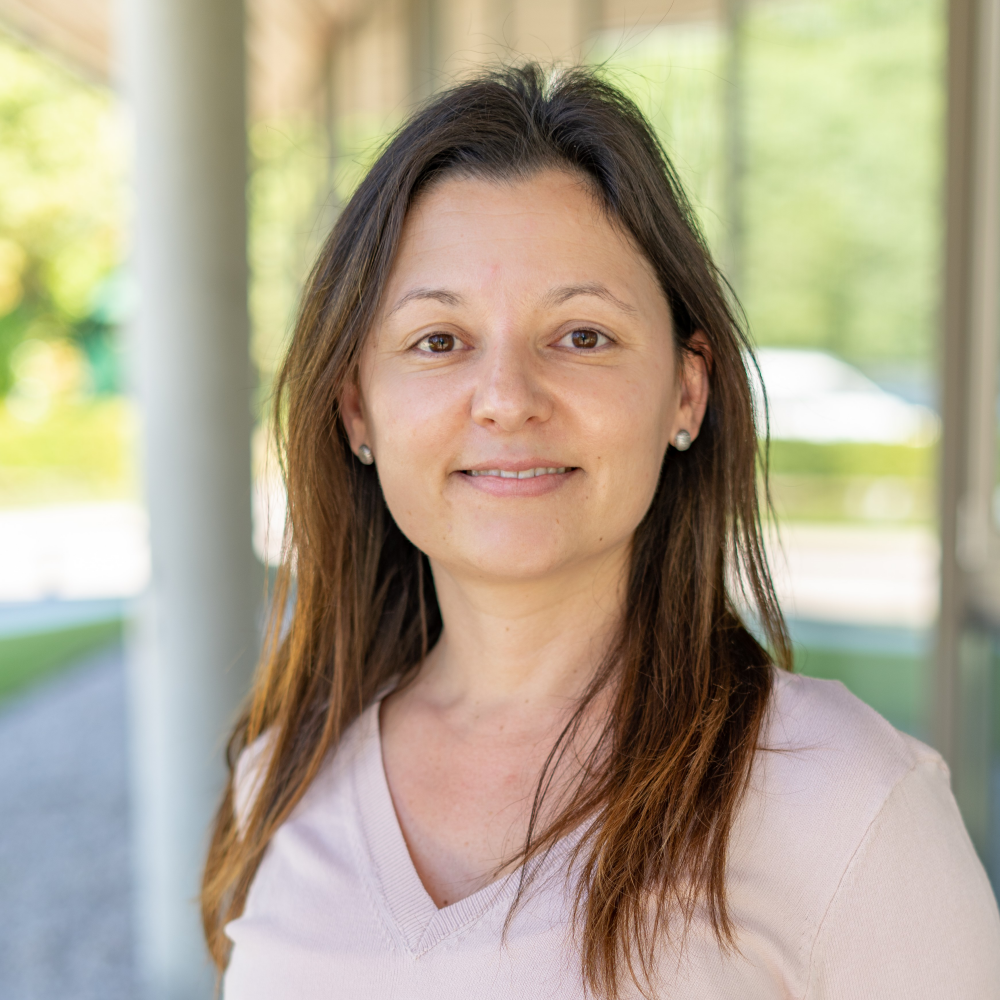 Valeria Faggioli
Valeria Faggioli
Instituto Nacional de Tecnología Agropecuaria
Argentina
Valeria Faggioli is a Researcher at the Instituto Nacional de Tecnología Agropecuaria (INTA), Argentina, in the Department of Soil Science and Crop Production (Marcos Juarez, Cordoba Province). She obtained her BSc in Agronomy, MSc in Soil Fertility, and PhD in Natural Science. During her post-doctoral studies, she performed training in bioinformatics at the European Bioinformatics Institute in Hinxton, UK (EMBL). The goal of her current investigations is to elucidate the impact of agricultural practices in microbial biodiversity studying long-term experiments.
Preservation of local biodiversity is a key factor in sustainable production. Agricultural soils can harbour diverse communities of microorganisms providing key ecosystem services such as nutrient cycling, chemistry and structure of soil, and plant productivity. To carry out sustainable agriculture, the understanding of the composition of microbial communities as well as changes induced by human practices demands the generation of experimental evidence.
As a member of CABANAnet project, the aim of her project is to investigate the impact of long-term anthropogenic practices on soil bacterial and fungal communities using high throughput sequencing techniques in emblematic agroecosystems of Argentina, Colombia, Costa Rica and Peru. This study pursues a complete taxonomic classification of the existing taxa and will represent an unprecedented dataset from Latin America.
Unveiling Soil Microbiome: From NGS Data to Sustainable Agriculture
The twenty-first century is the era of omics technologies, which are primarily focused on the generation and analysis of molecular data within organisms. In the last two decades, researchers in laboratories have generated enormous amounts of data due to the rapid development of high-throughput next-generation sequencing (NGS) technologies. The data generated by these technologies can be directly applied to agricultural developments. The agricultural system, which is directly connected to the soil, can promote plant growth either in a free-living state or associated with the rhizosphere region. Pathogenic organisms can affect plant health and remain in the soil for decades, rendering it unproductive. Additionally, a great variety of species remain in grains after harvest, altering further processes such as fermentation, storage, and commercialization. Identification through DNA barcoding in soil microorganisms is also a new avenue, assisted by various bioinformatics tools. Microbial systems biology provides another means to explore data from different metabolic pathways and taxonomic genes for valid conclusions about microbial activity. Overall, in silico tools, including databases and software, can help reduce the "microbial knowledge gap" and support the broad-spectrum study of soil microorganisms and their application toward sustainable agriculture.
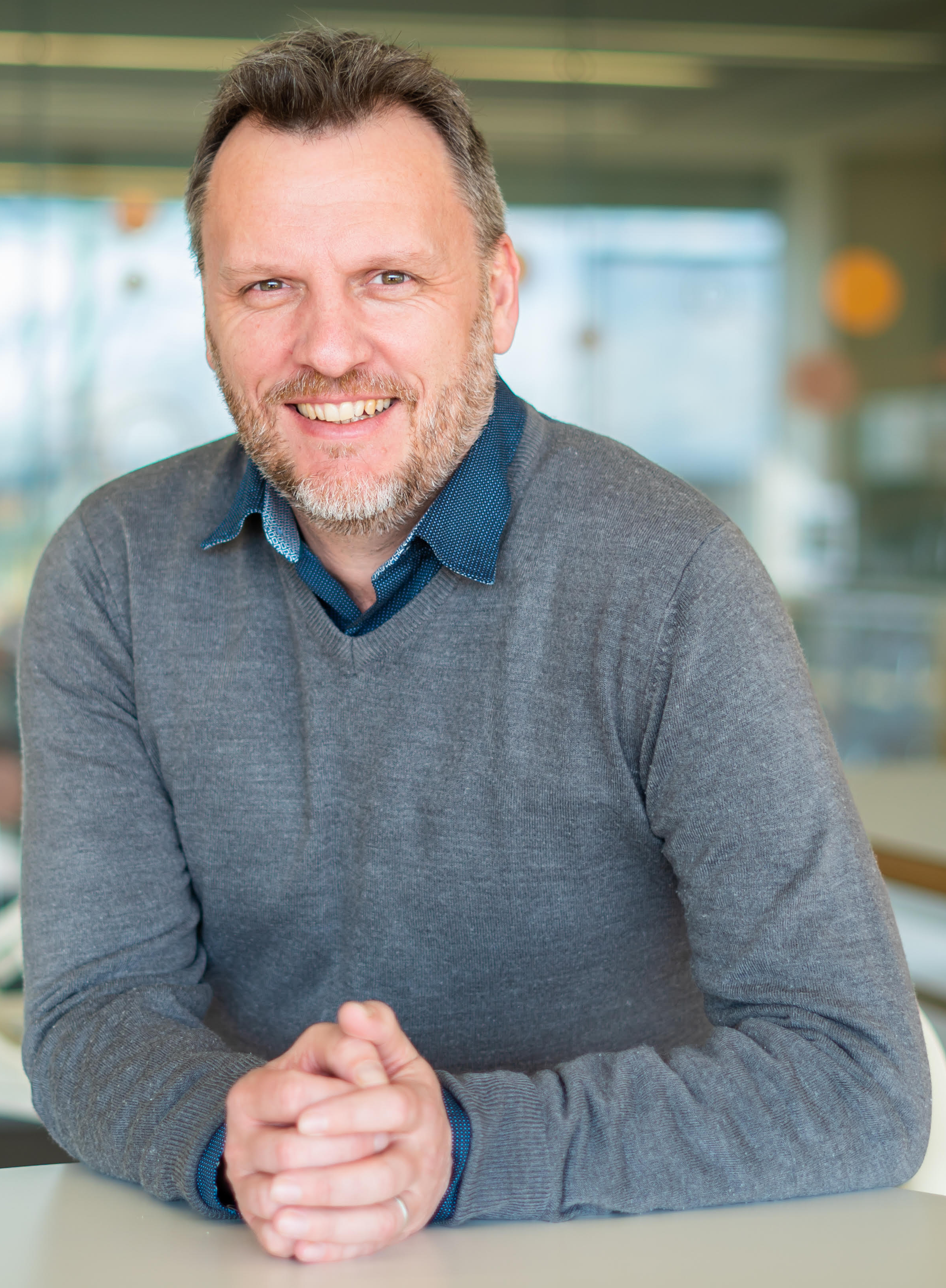 Rob Finn, Ph.D.
Rob Finn, Ph.D.
Team Leader and Senior Scientist
EMBL-EBI
United Kingdom
Dr Rob Finn leads EMBL-EBI’s Microbiome Informatics team, which is responsible for the MGnify resource, which provides access to the metagenomics, metatranscriptomics and assembly analysis services. The functional and taxonomic profiles of these datasets, once made public, can be access by all via the MGnify website. The team is also responsible for the HMMER website, which enables fast proteins sequence similarity searches against a range of sequence and profile HMM databases. Rob also has a small research group that probes the functions of microbial 'dark matter'.
Rob joined EMBL-EBI from the Janelia Research Campus in the US, where he led a group that designed fast, web-based, interactive protein-sequence searches and annotations. Between 2001 and 2010, he was the project leader for Pfam at the Wellcome Sanger Institute in the UK. Rob’s academic background is in microbiology and he holds a PhD in biochemistry from Imperial College, London.
Studying of diverse microbiomes through MGnify
Metagenomics, the analysis of the sum of genetic material from a sample, has started to shed light on the huge diversity of micro-organisms that occupy different such as the human body, soil and ocean environment. For example, humans host trillions of microbes, which have adapted to a range of body sites, such as the gut, oral cavity and skin. It is only since the application of metagenomic approaches have we started to understand the huge diversity of micro-organisms that occupy these different environments provided by the human host. MGnify hosts the catalogs of genomes, which is driving new avenues of research, especially with the aim to develop new model organisms and experimental systems. We have also conducted parallel research to recover genomes from the human skin microbiome, which not only harbours a very distinct microbial composition compared to the gut, but also carries additional challenges such as low DNA yield. Nevertheless, this analysis has provided multi-kingdom catalogues from the skin. Finally, the same approaches have started to reveal the diversity harboured in the marine environment. While this dataset is by no means complete, we are starting to understand how this data can be utilised to identify potential new products or enzymes tractable for bioremediation.
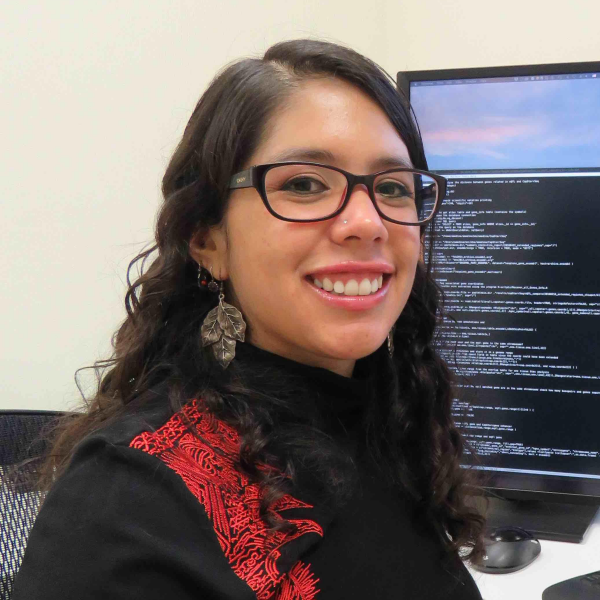 Alejandra Medina Rivera
Alejandra Medina Rivera
Laboratorio Internacional de Investigación sobre el Genoma Humano
Universidad Nacional Autónoma de México, Campus Juriquilla
Mexico
Alejandra obtained her Ph.D. in 2012 from the Biomedical Sciences Program at the National University of Mexico (UNAM), with a project developed under a cotutorship between Dr. Collado, at UNAM, and Dr. van Helden at the Université libre de Bruxelles. Since her Ph.D., she has been focused on developing bioinformatic tools, and strategies to study gene regulatory mechanisms, most of the developed tools are now part of the Regulatory Sequence and Analysis Tools suite (RSAT, http://rsat.eu/), where she still collaborates as a developer. Currently, using computational approaches, her research will incorporate functional genomics data into Genome Wide Association Studies (GWAS), aiming to identify variants that lead to misregulation of gene expression.
Unlocking the power of community data: LupusRGMX and immune cell research In LATAM
Patient registries are structured systems designed to collect, store, and analyze information about individuals living with specific health conditions. When combined with genomic data, they create new opportunities for genomic medicine and research. The MexOMICS Consortium was established to develop infrastructure that integrates electronic databases, enabling the collection, comparison, cross-referencing, and sharing of valuable information on various health conditions in the Mexican population, including the Mexican Lupus Registry (LupusGMX).
LupusRGMX is a digital data platform created to enhance understanding of the characteristics of Mexican people with Systemic Lupus Erythematosus (SLE) and to support longitudinal studies. Led by a multidisciplinary research team and engaging patient communities, the platform offers tailored surveys focusing on different aspects of patients' lives. This resource has empowered demographic, socioeconomic, and genomic research.
Building on the insights gained from MexOMICS and LupusRGMX, we have launched the JAGUAR project to map the immune cell diversity across Latin America.
 Helder Nakaya, Ph.D.
Helder Nakaya, Ph.D.
Associate Professor
School of Pharmaceutical Sciences
University of São Paulo
Brazil
Passionate about science, soccer, teaching, travel, and of course, gorgonzola, Helder Nakaya is a senior researcher at Hospital Israelita Albert Einstein in São Paulo and an associate professor at the University of São Paulo, Brazil. He holds a PhD in Molecular Biology and has extensive training in Bioinformatics. An expert in Systems Immunology, he works at the intersection of system-wide measurements, networks, and predictive modeling, particularly as they relate to vaccines and infectious diseases. His lab concentrates on investigating the foundations of infectious diseases through computational systems biology. Additionally, Dr. Nakaya serves as an adjunct professor at Emory University School of Medicine, in the Department of Pathology.
AI-Driven Precision Medicine: Unveiling Human Diseases through Single-Cell Systems Biology and Spatial Transcriptomics
In this seminar, I will explore the transformative role of Artificial Intelligence (AI) in medicine, focusing on its integration with systems biology at the single-cell level. We will show how spatial transcriptomics is revolutionizing our understanding of tissue architecture and disease progression. By leveraging these cutting-edge technologies, we aim to uncover new insights into human diseases and advance precision medicine approaches.
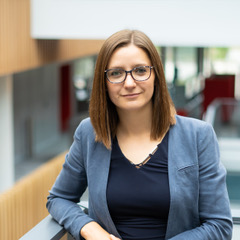 Gosia Trynka
Gosia Trynka
Head of Immune Genomics Group, Wellcome Sanger Institute
Science Director, Open Targets
Wellcome Genome Campus
UK
Dr. Trynka strongly believes that interdisciplinary approaches are essential to achieve meaningful insights into biological processes. The combination of molecular techniques, genomic assays, and computational methods that we develop and apply to study the immune system is a reflection of their own career path through several disciplines within biology and genetics.
With a background in molecular biology, they became interested in medical and population genetic approaches to study genetic determinants for immune related diseases. They joined Prof. Cisca Wijmenga’s group where they were a co-lead analyst for the genome-wide association study (GWAS) and an Immunochip study for coeliac disease (an immune disease of the small intestine resulting from intolerance to gluten). These studies resulted in identification of tens of disease risk loci and pointed to strong shared genetic background between celiac disease and a range of other common immune conditions, including type-1 diabetes, rheumatoid arthritis, and inflammatory bowel disease.
Despite their great success in mapping disease risk variants, they were disappointed by the limited insights that they gained in understanding biology of complex immune diseases. They therefore carried out their postdoctoral research at Brigham and Women’s Hospital, Harvard Medical School, and Broad Institute where they joined Dr. Soumya Raychaudhuri’s and Dr. Robert Plenge’s groups. They invested their time in developing statistical methods that allow translation of GWAS associations into biological functions. By integrating disease-associated variants with functional genomics data, these approaches pointed to specific cell types being relevant in the pathogenesis of numerous complex traits, including immune diseases. Their group at the Sanger Institute continuous with experimental and computational efforts to further map and translate immune disease genetic variants to function.
Using genetics to nominate, accelerate and deprioritise drug targets – a perspective from Open Targets Consortium
